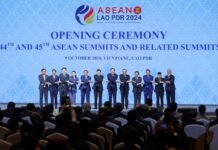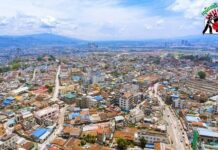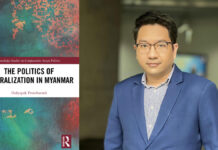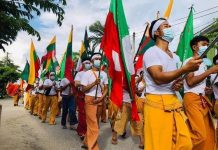Thailand’s Deep South, in sharp contrast to Burma’s non-Burmans, do not have any binding instrument like the Panglong Agreement to be used to enhance its status, according to a participant of a workshop organized at the Prince of Songkla University, Pattani Campus, on Saturday, 14 February.
“In fact, we don’t have several things that you have,” another participant added. “We have only just started.”
Putting their comments together, the differences between the peace process in Thailand and that of Burma, as they saw, are:
- You have an Aung San Suu Kyi that the world knows and supports
- The West had imposed sanctions on Burma. It still sets up benchmarks for its reforms
- Burma’s non-Burman problems are an international issue. Here, the Deep South is considered as a domestic issue
- Burma has a Union Peacemaking Central Committee (UPCC), a central policy making body, for the negotiating body, Union Peacemaking Work Committee (UPWC) to follow
- Non-Burmans have their parliamentarians and politicians to speak for them. We have few to do for us
- Most of all you have active (ethnic and non-ethnic) new agencies “campaigning” in the interests of the ethnic peoples
All the same, there are striking similarities:
- In Burma, the trouble began when the Burmese rulers embarked on the road toward a nation-state in 1948. Here we started earlier since the turn of the 19th century when Bangkok launched its administrative reforms that downgraded the autonomous status of its former tributary states
- Activists like lawyer Somchai Neelapaijit “disappeared”. Many are jailed and tortured
- There are armed resistance movements too, though they are smaller
A new peace effort was initiated by the Yingluck government in February 2013. Three rounds of talks were held in Malaysia before the coup came in May 2014.
“The new government has announced that it would continue with the peace process,” said a participant. “We heard it has formed a 3 tiered structure to deal with the issue. But it is still unclear what format it will take.”
Dr Chaiwat Satha-anand, Thailand’s well known scholar, who is Muslim but also a solid Bangkokian, had told a seminar at the University of Michigan in 2009 that “a new type of citizens” is needed in order improve the situation.
The Deep South, which is made up of 3 provinces: Pattani, Yala and Narathiwat, and 4 districts in Songkla province, has a population of 1.8 million, 300,000 (16.7%) of whom are Buddhists and the rest Muslims. The former kingdom was occupied by Siam in 1785.
A new wave of violence which began in 2004, between January 2004-April 2014, according to a report, had resulted in 14,218 incidents causing 17,005 deaths and injuries.

















Leave a Comments